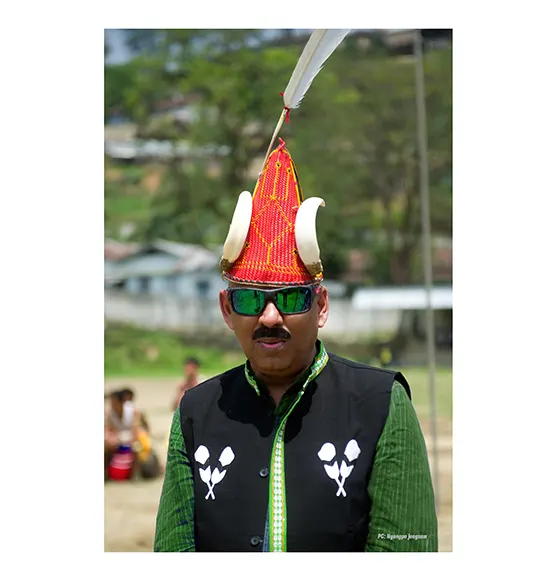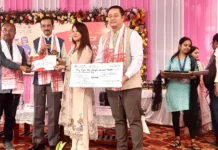[ Tom Simai ]
Arif Siddiqui – a state silver medallist, renowned shutter-bug, and passionate nature enthusiast – is a name synonymous with altruism and creativity. For decades, this extraordinary individual called Arunachal his karmabhoomi, leaving an indelible mark on the Tangsa community and Changlang district. Siddiqui’s contributions resonate profoundly even years after his departure.
In 2000, Siddiqui arrived in Jairampur, a remote yet culturally vibrant paradise longing for recognition. Through tireless dedication, he elevated the Tangsa identity to a global stage. His deep connection with the Tangsa community was palpable – so much so that no festival felt complete without his involvement. From day one, he became the soul of every festival that was organised and celebrated in this frontier region. Despite no ancestral ties to the region, Siddiqui’s selfless devotion to Tangsa traditions stemmed from an emotional bond with the community’s simplicity and warmth.
Siddiqui’s pioneering spirit shone brightly in his role as one of the founders of the Pangsau Pass International Festival, initially launched as the Pangsau Pass Winter Festival. For years, he imbued the event with life, innovation, and global appeal. His romance with the festival continued until 2016, when he shifted his focus to documenting the tribes and festivals of Arunachal Pradesh through his lens.
Nature conservation was another cornerstone of Siddiqui’s life’s work. In 2006, he organised the first Butterfly India Meet in Jairampur, which was a first in the entire Northeast India, followed by a landmark event in 2010 at the Namdapha National Park and Tiger Reserve, where his efforts led to the discovery of numerous new butterfly species. These initiatives highlighted the region’s rich biodiversity and brought global attention to its ecological significance.
Siddiqui’s contributions to cultural preservation were equally transformative. In 2005, he redefined the Moh-Mol festival, introducing artistic elements and establishing the region’s first indigenous fashion show. This pioneering initiative became a vital platform for showcasing the Tangsa community’s heritage, seamlessly blending tradition with contemporary appeal. He had been a significant part of both the Pangsau Pass International Festival and the Moh-Mol festival until his retirement a few years ago.
Although Siddiqui retired from the public works department (PWD) and left Jairampur one-and-a-half years ago, his absence is deeply felt. His relentless work turned the region’s culture from an obscure narrative into a shining beacon of pride. He adhered to a successful mantra: he never acted alone. Siddiqui always encouraged the local youths to walk beside him, not behind him.
Even in retirement, Siddiqui remains committed to publicising Arunachal Pradesh. Through his popular website, www.amazingarunachal.com, he continues to highlight the state’s people, culture, and panoramic backdrops, ensuring its story reaches the world.
For over two decades, Siddiqui was a driving force behind every social and cultural event in the frontier region. His journey exemplifies how passion and perspective can transform even the most remote corners into beacons of significance. As the Tangsa community continues to evolve, Arif Siddiqui’s story endures as a shining testament to selfless devotion, creativity, and resilience – a legacy poised to inspire generations of Tangsa yet to come.


